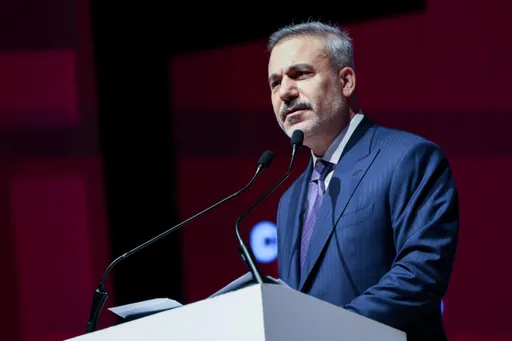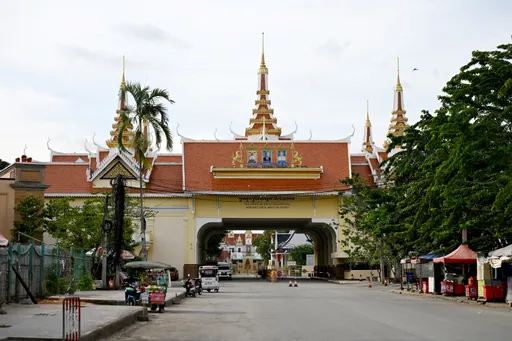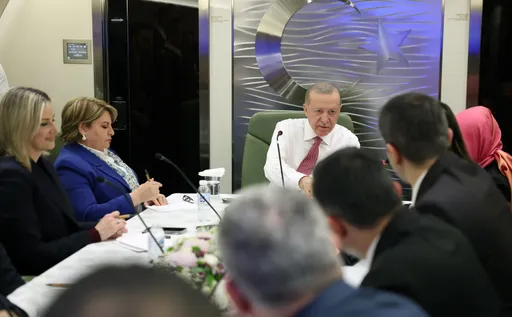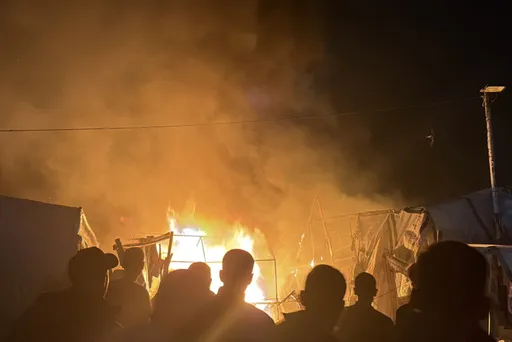The Supreme Court of India, the highest court of the country, has been engulfed in a crisis for the past month which has led to many questioning its allegiance to truth and justice when it comes to one of its own.
India’s ‘MeToo’ movement, which started late last year, reached the doorsteps of the Supreme Court last month. A former employee of the apex court accused the Chief Justice of India (CJI), the head of India's judiciary, of sexually harassing her last October.
A three-judge committee which was formed to look into this matter dismissed the allegations, sparking public outcry. Protests were organised in multiple cities and police detained the protesters for long periods of time.
“Today [on May 10] close to 106 people were detained, according to what the police themselves told us," said Rakhi Sehgal, a protestor and trade union activist. "We have seen in the entire tenure of the current government that no one is allowed to ask for rights or criticise the government or the institutions.”
How it all started
The allegations were made on Friday April 19, in an affidavit that the complainant, who worked as a junior court assistant, addressed to 22 judges of the Supreme Court, giving a detailed account of how the CJI, Ranjan Gogoi, made sexual advances towards the former employee at his residence on October 10 and 11, 2018.
“He hugged me around the waist, and touched me all over my body with his arms and by pressing his body against mine, and did not let go. He told me 'hold me', he did not let go of me despite the fact that I froze and tried to get out of his embrace by stiffening and moving my body away. Since he did not stop forcibly hugging me, I was forced to push him away from me with my hands. When I pushed him away, he hit his head against a bookshelf/ cabinet on my left. My first thought was why would the CJI think he can do something like this to me”, reads the affidavit by the 35-year-old complainant.
Her name is being withheld in the reports since victims of sexual assault and harassment cannot be named by the media, as per the Indian law.
The affidavit also provided details of her work profile from 2014 as the junior court assistant. According to the affidavit, she was sent to work in Justice Gogoi’s chamber in 2016 (Gogoi became the CJI on October 3, 2018). The complainant wrote how he took an interest in her work and her family and started asking her to take up tasks which were above her role. She was asked to prepare briefs and summaries which, according to Indian publication Scroll.in, was unusual as she did not have a law degree. After it was formalised that Gogoi would become the next CJI, the complainant was transferred to his residence office, a move which according to her, made her feel grateful “at being assigned such an important and prestigious role so early in my career”.
The former employee has also written how she refused Gogoi’s offer to find her family accommodation closer to his residence but mentioned that her brother-in-law was not able to find a job due to disability in one leg. The 39-year-old was appointed as a temporary junior court attendant through the CJI’s discretionary quota, despite the fact that he was found to be medically unfit.
The harassment started soon after. According to the complainant, the CJI remarked on her appearance one day and also touched her inappropriately. The next day, after the complainant spurned Gogoi’s advances towards her, things took an ugly turn. To begin with, the affidavit alleges that the police began enquiring about her and her husband from their neighbourhood president. Furthermore, 10 days after the incident, the complainant was transferred to the Centre of Research and Planning at the Supreme Court, only to be transferred again to another administrative department, and finally to the library on November 22.
Meanwhile, she was also informed about a disciplinary enquiry being initiated against her. She faced three charges - that of questioning the decisions of senior officers, bringing influence from “unacceptable quarters” to exert pressure on her supervisors, and unauthorised absence from duty on November 17. The complainant, in her letter, has given reasons and defence against all three charges. On December 21, she was dismissed from service after the inquiry committee found her guilty on all three charges.
The story did not end here. A week after her dismissal, her husband and older brother-in-law, both employed in the Delhi police, were suspended without being provided with any reason, other than “pending enquiry into conduct”.
A few days later, both received orders which detailed charges against them including links with gamblers and intervening on behalf of gamblers. The order also mentioned a 2012 criminal case against both of them involving a colony dispute, which the complainant wrote, had been resolved.
The other brother-in-law, who was appointed as the junior court attendant, was also suspended.
The complainant also wrote that when she and her husband tried to reach out to others for help, a senior police officer convinced her to apologise to Gogoi. According to the affidavit, she was driven to Gogoi’s residence, where instead of Gogoi, his wife was present who humiliated her and asked her to apologise. The complainant wrote that she obliged to save herself and her family.
But on March 8, the family ran into trouble again as a Delhi police team arrested her, her husband and one other family member on a charge of accepting a bribe. However, no case has been registered against the person who purportedly offered the bribe. Although the complainant was granted bail on March 12, the case has been given to the crime branch, which according to reports, has moved the court for cancellation of bail.
Is the due process being followed?
This high-profile allegation of the harassment of a woman at the hands of one of the most powerful men in the country has gripped the media and public alike. While there are many who have openly come out in support of the woman, the case has not escaped the typical tangent of victim-blaming and accusations of a “conspiracy” against the CJI. In an email sent to reporters, the secretary general of the Supreme Court said that the allegations made by the woman “were completely and absolutely false and scurrilous and are totally denied”.
When the MeToo movement broke out in the country on Twitter last year, there was serious discourse around due process and how it has failed many women, which is why they turned to social media. But is due process being followed in the case, which involves the man who heads the highest court in the land?
“It was an allegation against CJI, she [the complainant] had no intention to defame the whole institution," Ajoy Ashirwad Mahaprashasta, a journalist with The Wire, who was one of the first to break the story, told TRT World.
"But the developments in the SC [Supreme Court] in the last few days, where it felt that the CJI may have used the judicial machinery to defend himself, shows a degree of hollowness in our top court.”
A day after the accusations came out in public, Gogoi himself conducted a special hearing in which he said that the independence of the judiciary was under threat.
A column by a Delhi-based lawyer called the hearing a “spectacle fit for a kangaroo court”.
Many reports reveal the fix that the Supreme Court has found itself in. Although there is an internal committee to deal with such allegations, it requires the permission of the CJI to do so. Another report spelt out that there is an in-house procedure to deal with complaints against the judges of the Supreme Court and High Courts, which are required to be examined by the Chief Justice, but it does not mention how to deal with a complaint against the CJI.
A three-judge committee was later formed and conducted a hearing on April 26. After the third hearing, which took place on April 30, the complainant released a press note saying that she had decided to not participate in the hearings since the committee was “frightening” and that she had no hope of justice from the committee. According to the press release, the complainant was told that the hearings were “informal” and not under the Vishakha guidelines - a set of procedural guidelines in India to deal with cases of sexual harassment - or Prevention of Sexual Harassment against Women at the Workplace (POSH) Act.
She further mentioned that she was not even allowed to be accompanied by her lawyer, nor was she informed about the procedure that the committee was following.
Instead of addressing the woman’s concerns and conducting a fair inquiry, the committee proceeded, hearing the CJI’s side and dismissing the allegations against him as being “without substance”.
Meanwhile, the Supreme Court has ordered the formation of an inquiry panel to look into the allegations of ‘conspiracy’ against Gogoi.
“To a neutral observer like me, it felt that CJI turned the allegations against him into an attack on the judiciary, which was never the case," Mahaprashasta said. "The procedural violations at the court are unprecedented. CJI, with only a few special administrative powers, is supposed to be only first among equals but it seemed he acted as the lord of an independent institution.”
The SC, Mahaprashasta said, should have ideally led by example and ensured that the complainant received a fair hearing.
In a detailed interview that the complainant gave to three publications after the dismissal of her allegations, she said she had provided sufficient evidence to back her allegations and that she is sleepless, thinking of what will happen next.
“The complainant feels dejected, scared. She has been under tremendous depression and stress, lost hearing in her right ear," Mahaprashasta said. "She also claims she has been facing both direct and indirect threats. We must understand that here is one complainant, with hardly any social and economic immunity, who has dared to take on the highest seat of the judiciary."
























